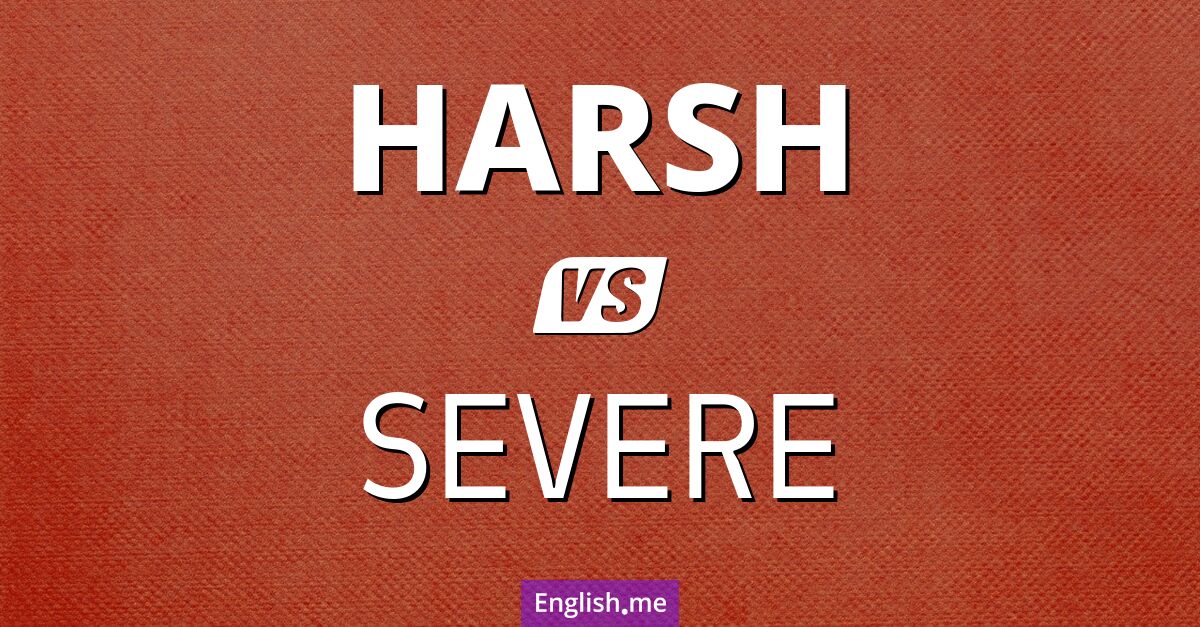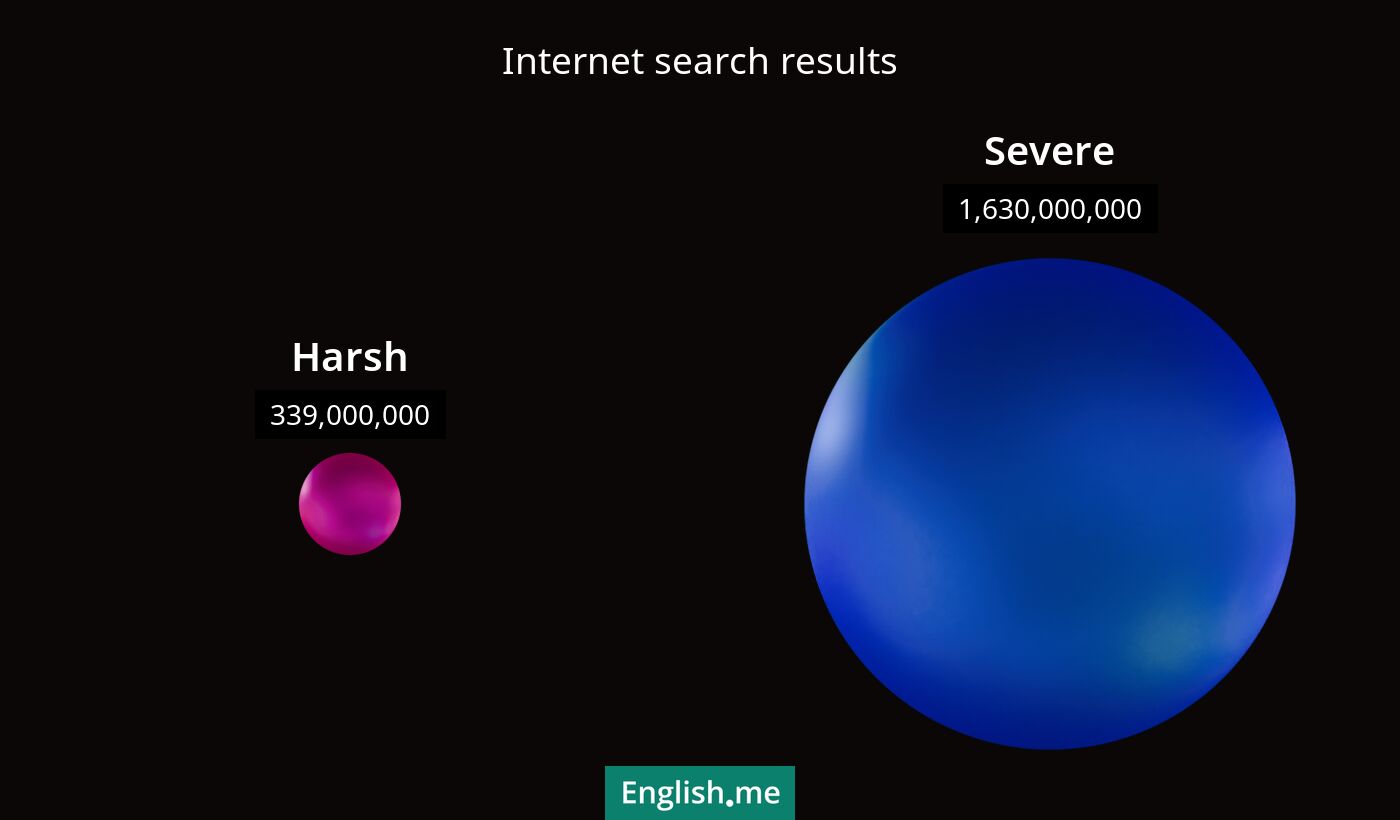"Harsh" vs. "severe": comparing shades of intensity
Reviewed and edited by  Anwar Kareem 19/10/2024, 19:11
Anwar Kareem 19/10/2024, 19:11
English.me team member

 What is similar?
What is similar?
Both "harsh" and "severe" describe conditions or judgments that are intense, strict, or unyielding. They can both be used to describe weather conditions, criticism, or penalties that are difficult or demanding.
 What is different?
What is different?
The word "harsh" often implies roughness and a lack of gentleness, while "severe" tends to emphasize intensity or strictness and can apply more broadly to situations or rules. "Harsh" can suggest a more personal, emotional quality, whereas "severe" can be more formal and objective.
 Which one is more common?
Which one is more common?

 Examples of usage
Examples of usage
Harsh- The teacher's harsh words made the student feel bad.
- The winter was harsh, with freezing temperatures and biting winds.
- Her harsh tone of voice made it clear she was upset.
- The storm caused severe damage to the town.
- After breaking the rules, he faced severe consequences.
- The doctor warned him about the severe health risks of smoking.

 English
English español
español française
française italiano
italiano deutsche
deutsche 日本語
日本語 polski
polski česky
česky svenska
svenska Türkçe
Türkçe Nederlands
Nederlands